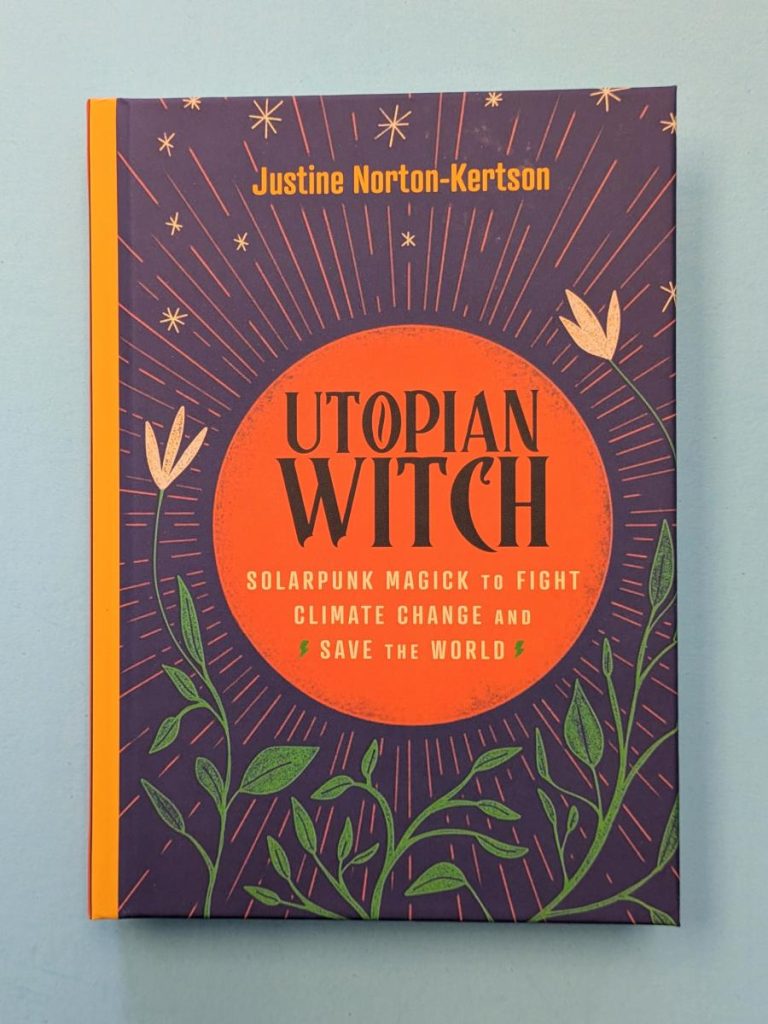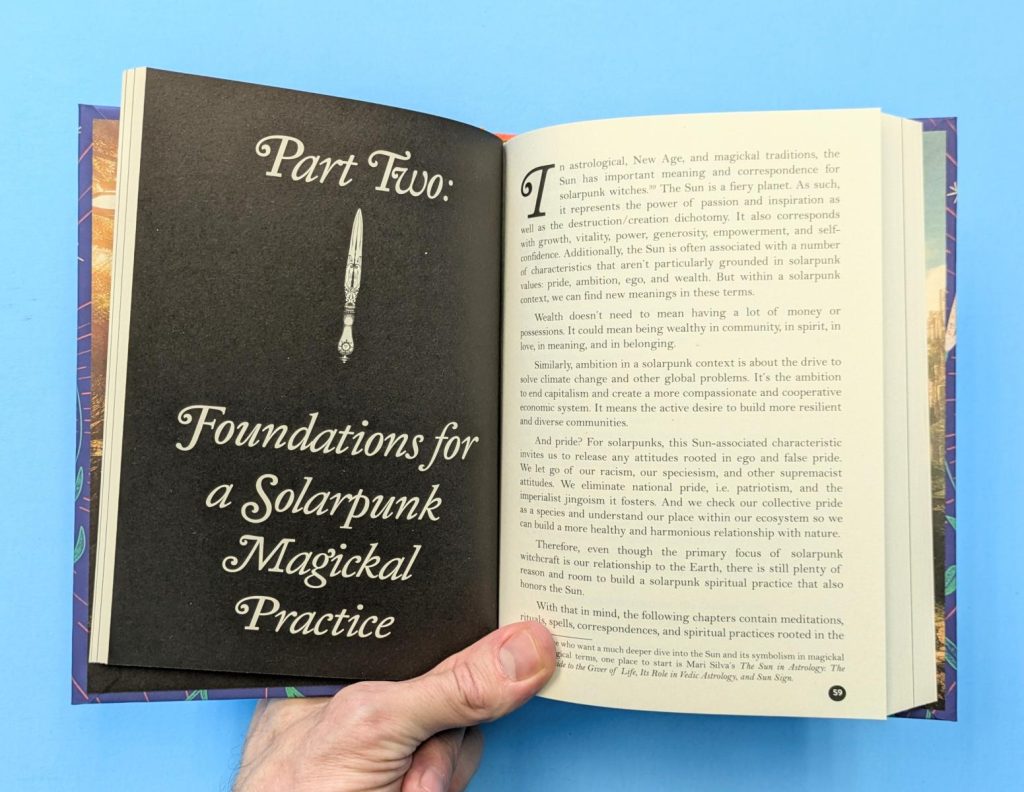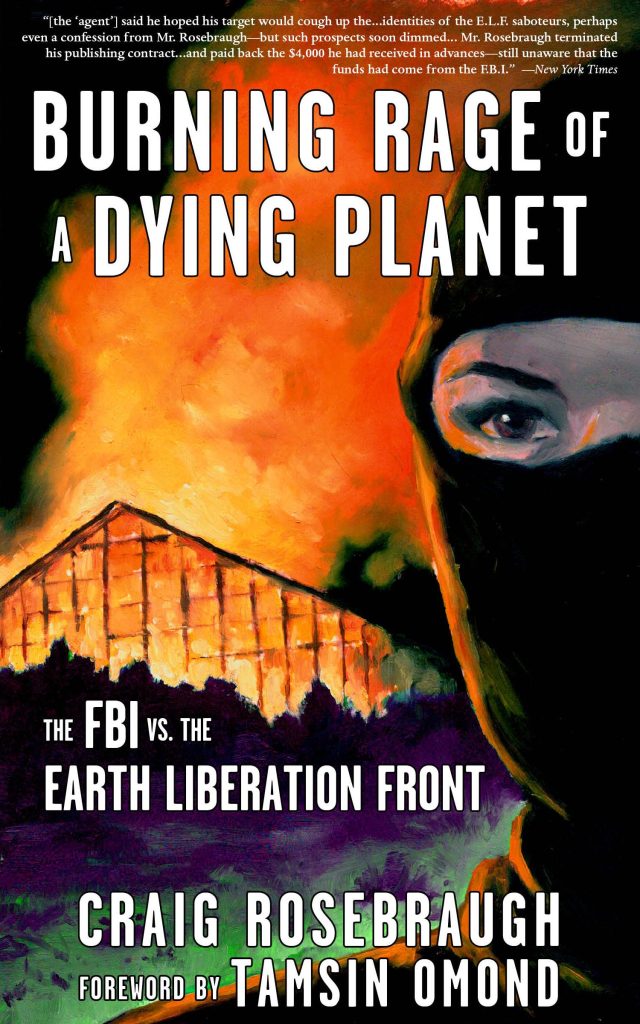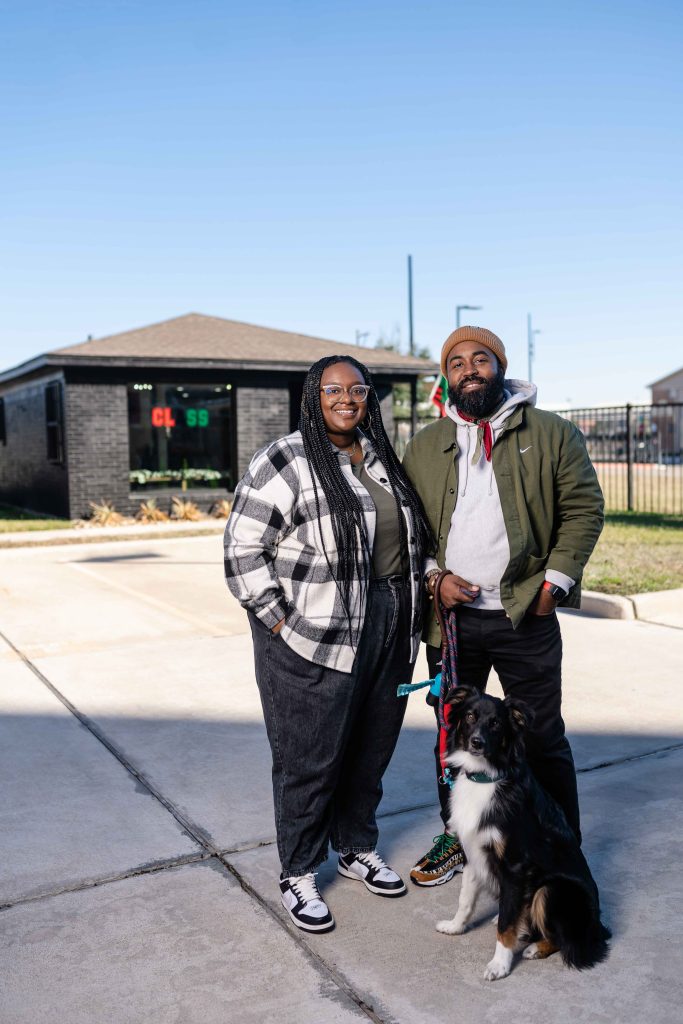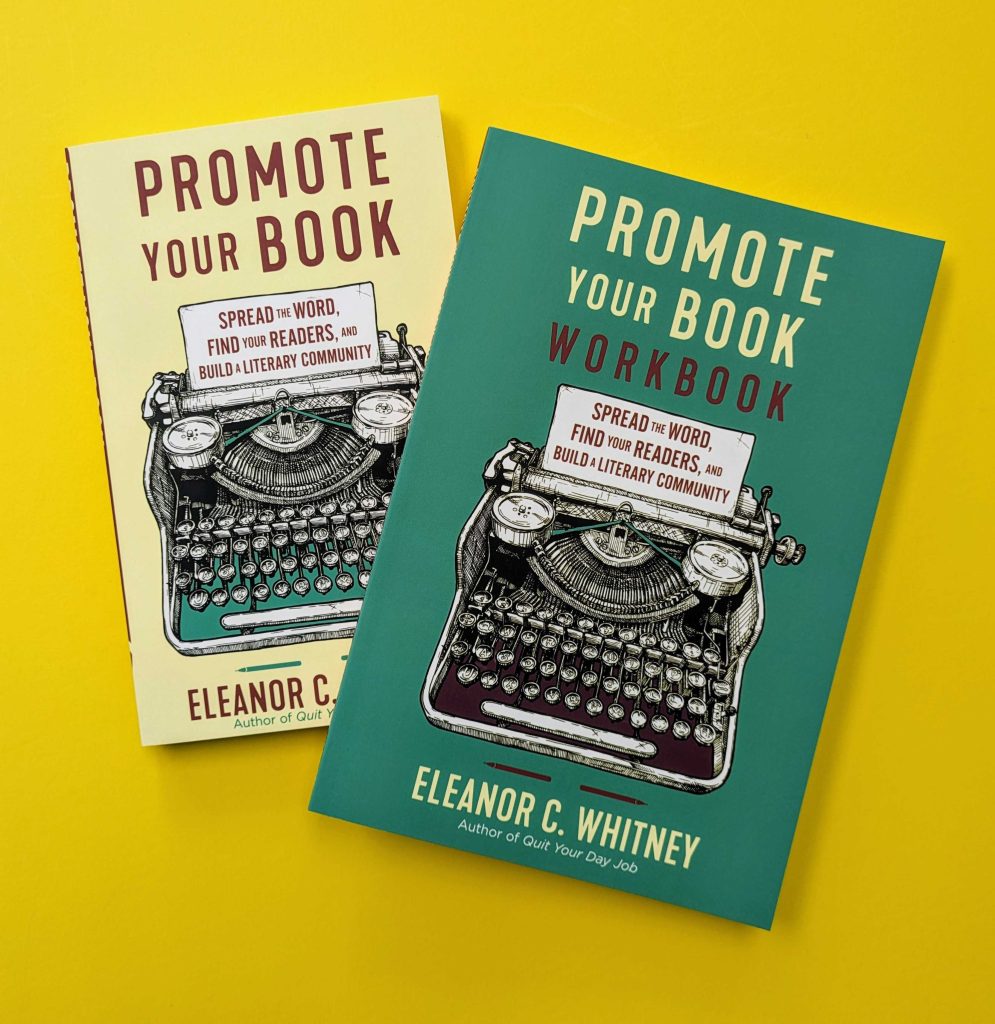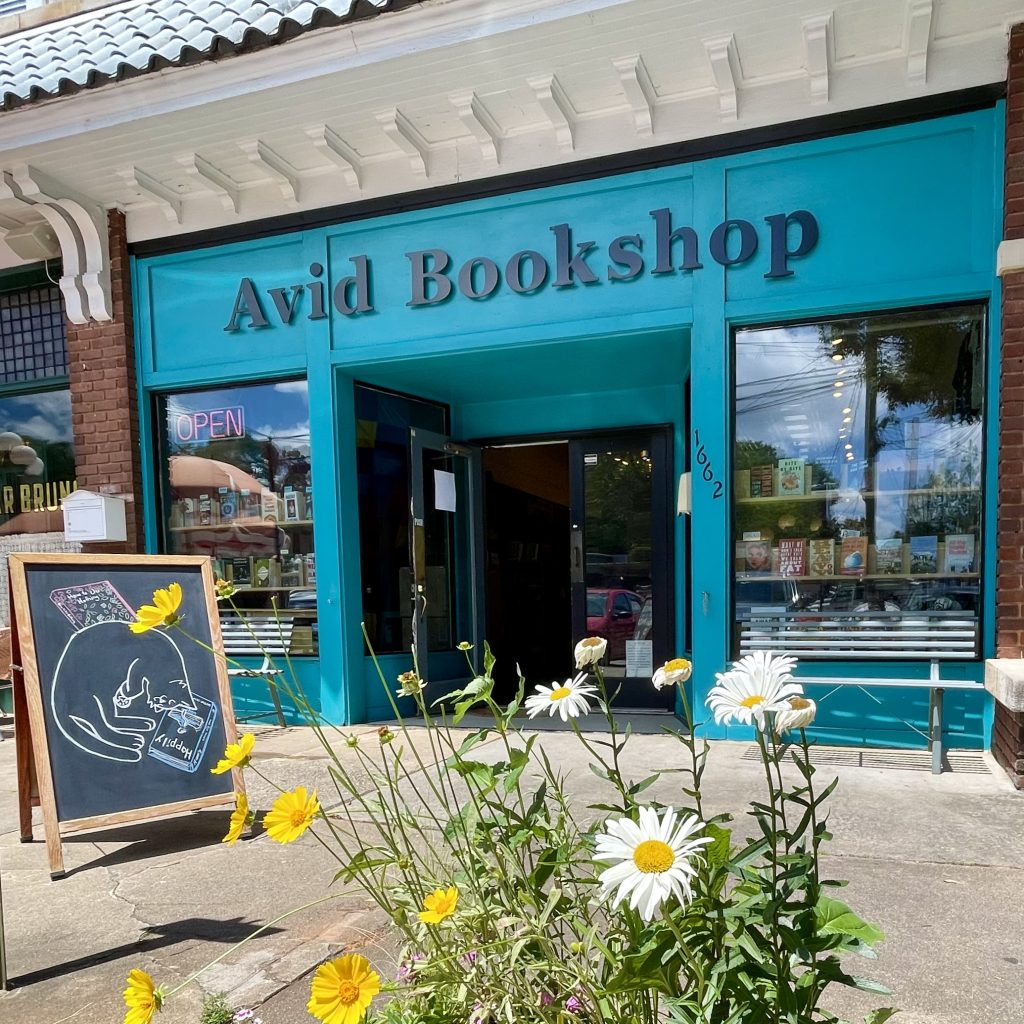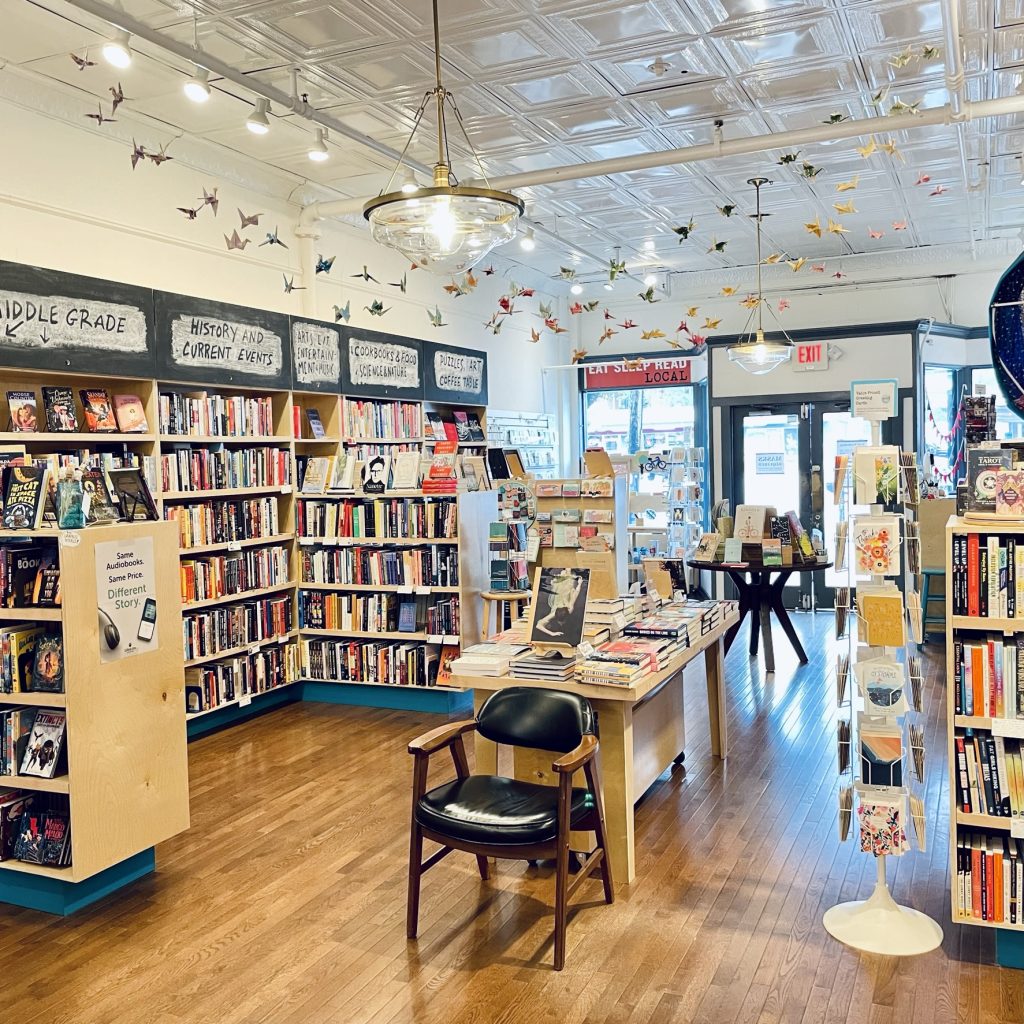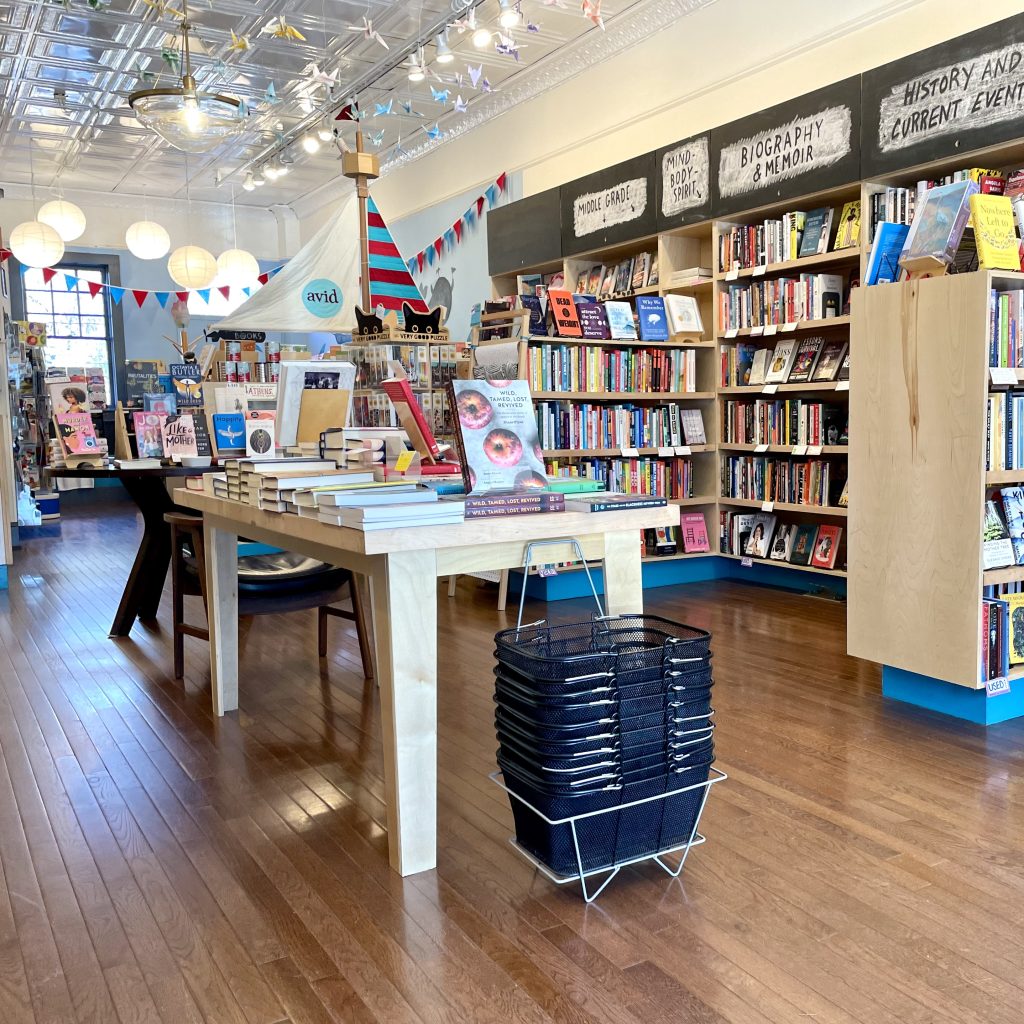Read an excerpt of Utopian Witch, and Q&A with Justine Norton-Kertson!
Once upon a time, Justine Norton-Kertson corrupted young minds by teaching high school history, civics, and economics from a leftist perspective, then spent almost a decade as a community and union organizer. Nowadays, Justine continues working to corrupt the youth, primarily as a publisher, author, screenwriter, and podcaster. They founded Android Press and Solarpunk Magazine in 2022 and are editor-in-chief for both.
Most recently, Justine wrote Utopian Witch, a book of solarpunk rituals, spells, and practices for radical action towards a positive future.
Read on for our interview with Justine, where they talk about writing, working with us Microcosm folks, and what they’re working on next. Below that, check out an excerpt from the book!
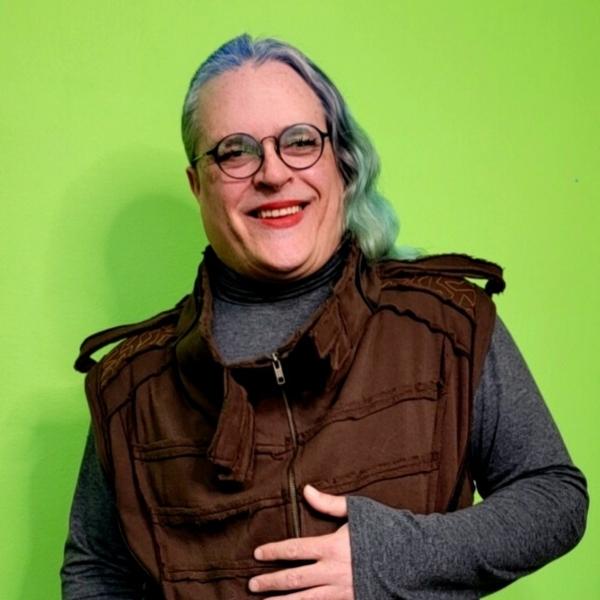
What inspired you to write your book?
Utopian Witch is inspired by a deep sense of urgency and a profound belief in the power of community and individual action. I’ve always been passionate about environmentalism and social justice. I’ve also been a practitioner of witchcraft for decades, and early on was inspired by the feminist and social justice oriented craft taught by Starhawk. I began to see clear connections between the principles of solarpunk—a movement that envisions a sustainable and equitable future—and the transformative power of magick. I also noticed quite a few other folks in the solarpunk movement who practice some type of witchcraft or other new age spiritualities.
The idea that we can blend practical, real-world actions with spiritual practices to effect change is incredibly empowering. In solarpunk, I found a philosophy that not only addresses the ecological and social crises we face but does so with a spirit of radical hope and creativity. It’s about imagining and building a world that works for everyone and respects the Earth. In the same way, as a witch I’m familiar with the power of intention and ritual in shaping our reality. By combining solarpunk ideals with magickal practices, I saw an opportunity to create a resource that could inspire others to take action, both spiritually and practically. I wanted to provide tools and spells that could help people feel empowered to make a difference, to feel connected to a broader movement, and to envision a utopian future where humanity lives in harmony with nature.
Writing this book was my way of weaving together my passions for the environment, social justice, and magick into a cohesive guide that could help others on their journey. It’s about creating change on both a personal and collective level, using the power of witchcraft to fuel our dreams for a better world.
What was it like to publish with Microcosm?
Publishing with Microcosm has been such a great experience. This is my first time publishing a book from the author’s side of the table. I’m also editor-in-chief at Android Press, so I know how challenging the editorial process can sometimes be. But working with the folks at Microcosm has been so easy and enjoyable. My editors were incredibly helpful in so many ways, from working through the best way to structure the book to helping ensure the prose reads well and has the intended impact. I can only hope my future publishing experiences as an author are equally positive.
What was the submission/query process like for you?
I thought the submission/query process was easy and straightforward. The Microcosm website outlines really clearly how to submit a query. I was actually surprised how quickly I heard back with a positive response, because I know how long the query process can often take. Whether it’s with agents or publishers, they usually have no less than a mountain of queries and manuscript submissions to sift through.
What else have you written?
I actually spend a significant amount of my free time writing. I’m about 40,000 words into the first draft of a book about the influence of nerds and the evolution of nerd character tropes in horror movies. I also write a lot of fiction, actually more than I write nonfiction. I recently had a short story called “Rabbits, Rivers, and Prickly Pears,” published in World Weaver Press’s Solarpunk Creatures anthology and another short story called “Do Me Out” that was published by Utopia Science Fiction Magazine. That one’s an apocalyptic hopepunk story set in Oregon’s Columbia River Gorge. I’ve written a couple novellas in the climate fiction and horror genres that are in various stages of revision or querying, and I’m currently co-authoring a climate fiction novel that blends surrealism, zombies, and solarpunk’s focus on DIY culture and climate solutions. But wait, that’s not all! I’ve also co-authored a horror script that is about to start being pitched to producers. Fingers crossed!
What are you currently reading?
I’ve definitely been on a horror kick lately. I’m currently reading an eldritch horror novella by P.L. McMillan called Sisters of the Crimson Vine, about a cult of nuns who grow their own grapes to make a mysteriously intoxicating wine. And they really hate the Catholic Church. I also just bought Paul Tremblay’s latest novel, Horror Movie, which just published this week. I haven’t started reading it yet because I’m trying to finish Sisters of the Crimson Vine first, but I’m really excited to dive into Tremblay’s latest.
What’s the best book you read in the last year?
Full disclosure, this is a book my publishing company, Android Press published, but even if that weren’t the case, this would still be my favorite book I’ve read this year. The book is a novella called “The Year of Return,” and it’s the debut by Ghanaian author Ivana Akotowaa Ofori. It’s a chilling yet hopeful ghost story about the ghosts of Africans who were captured and died during the Middle Passage who rise up from the depths of the Atlantic Ocean to seek various forms of revenge on the ancestors of their captors and killers.
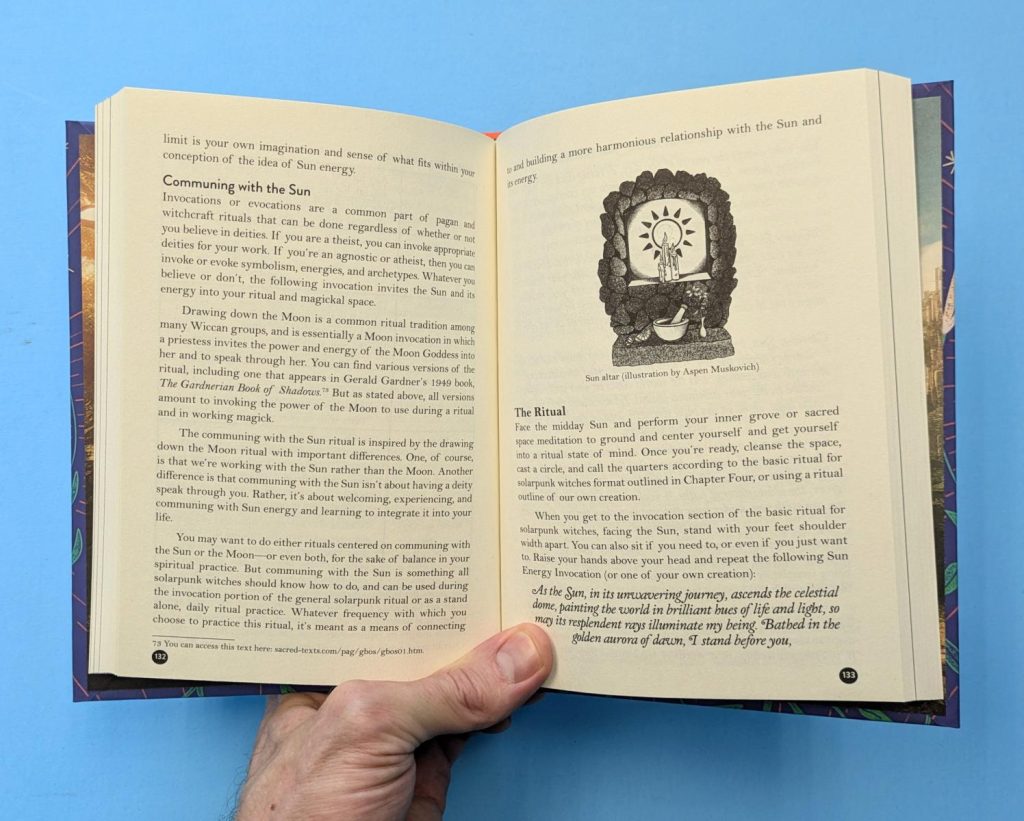
What’s next for you?
I recently finished the manuscript for a follow up to Utopian Witch that’s about using tarot cards as a community tool in the fight to build a better world. And I’m really excited about diving into the editorial process for that next book. I also recently helped start a production company called Nerd Horror Media (@nerdhorror on TikTok and Instagram), and am keeping my fingers crossed that we’re able to secure funding to produce our first independent horror film.
Here’s an excerpt from Chapter 2 of Utopian Witch called “Radical Hope, Radical Politics, and Punk Magick”
Before we move on to solarpunk spiritual practices and spells, a look at the relationship between radical hope, radical politics, and magick deserves something of its own discussion. Over the years, one question I’ve heard with some frequency, particularly from those who are discovering solarpunk for the first time, is how a genre that’s all about utopia qualifies as punk. It’s a fair question. Afterall, aren’t punks rude people who listen to loud and angry music? Aren’t punks those crude and obnoxious anarchist kids sitting in the gutter with ukuleles and face tattoos, asking for change and leftovers? Even in science fiction literature and fantasy literature, -punk is all about resisting, rebelling, and fighting against corruption even if the odds are insurmountable.
So where’s the punk in utopia?
The first part of the answer to that question is, despite its utopian focus, solarpunk is no different than other -punk literary genres in that resistance and rebellion are foundational elements. In his 2014 article, “Solarpunk: Notes Toward a Manifesto,” Adam Flynn, one of the early writers and thinkers on the solarpunk genre, asserts that “There’s an oppositional quality to solarpunk, but it’s an opposition that begins with infrastructure as a form ofresistance.”28 This is evident in the genre’s focus on dismantling fossil fuel infrastructure in developing and expanding renewable
energy infrastructure.
Seven years later, in the summer of 2021, “A Solarpunk Manifesto,” was published online by Regenerative Design, a permaculture training, consulting, and design firm. That article
places the -punk in solarpunk within the well-established tradition of resistance. “The ‘punk’ in solarpunk,” it says, “has to do with rebellion, counterculture, post-capitalism, decolonialism and
enthusiasm.” That statement reflects solarpunk’s well-established stress on the expected parts of punk: nonwestern cultures and radical, liberatory political theory and praxis.The last couple words in the above quote—“decolonialism and enthusiasm”— point us in another direction, toward the idea that hope is punk as fuck and is capable of representing the -punk in solarpunk all on its own. In that vein, Regenerative Design’s solarpunk manifesto continues: “We are solarpunks because optimism has been taken away from us and we are trying to take it back,” and “we are solarpunks because the only other options are denial or despair.”
Since we live in a dystopian reality, we’re robbed of our optimism and often see hope as naivete. As a result, we’re engaged in a struggle to restore that hope, because without it, we can’t win. Put more simply: in a world full of despair, hope is an act of rebellion in its own right.
But the hope of solarpunk isn’t a naive hope. We aren’t talking about blind faith or uncritical Pollyanna optimism. Rather, the hope implicit in solarpunk is what University of Chicago philosopher Jonathan Lear termed “radical hope,” and what NYU research professor José Esteban Muñoz argued is a key component of queer utopianism.
So what is radical hope? It’s the kind of hope earned through oppression and struggle, and in the face of annihilation, at the hands of seemingly insurmountable force. It’s a hope that, faced with cultural or environmental collapse, enables us to keep moving forward day after day, to keep working toward a better world, to keep demanding utopia, and to keep resisting and struggling, even in the face of overwhelming odds.While on the surface this may seem like naive optimism, it’s not. Instead, radical hope is the realization that if we’re to go on at all, then hope in resistance and radical system change is our only option.
That sure sounds punk as fuck to me.Radical hope doesn’t only fit the punk ethos and drive the activist spirit. It’s also an extremely valuable tool for solarpunk witches and the practice of punk magick. There is, in fact, a direct relationship between radical hope and practicing magick.
At its most simple, magick involves four basic steps:
- feeling a strong, guttural, and visceral desire for something,
- generating the willpower to make it real,
- using those feelings to build up a bunch of powerful energy,
and- focusing that energy into a visualization related to the
target of your magickal work.
For witches, radical hope provides a source for the guttural, visceral desire that is fuel, fire, and spark for our magickal spellwork. When your spiritual hope draws its strength from a lifetime of struggle and oppression against insurmountable odds—a reality for most witches—you’re more likely to have a deep well of strong feelings, desires, and righteous anger to draw upon when building energy
and power for your spells.
And that is the punk magick of radical hope.
Justine Norton-Kertson lives in rural Oregon with their partner, puppies, cats, goats, and bunnies, where they enjoy gardening, kayaking, writing, and making short films. They can be found online on Instagram and TikTok @utopianwitchcraft, or at www.justinenortonkertson.com.
Does a radical, solarpunk utopian sound like your jam? Check out Utopian Witch.
